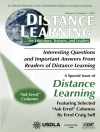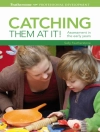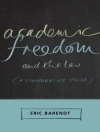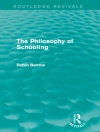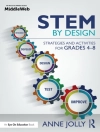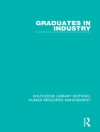`Tricia David starts the book off with a commitment to the importance of relationships. ‘The impact of emotional aspects of a school or nursery situation has long been neglected in the UK, as is amply demonstrated by the list of criteria for judging the quality of teaching drawn from Of STED critieria’. Amen to that′ –
Times Educational Supplement, Friday Magazine
` Teaching Young Children is essential reading for early years teacher trainers and anyone working with young children from birth to eight years old. It is an excellent companion volume to one of David′s other books, Young Children Learning . David′s many contributions to the literature in early years education has focused on the ways in which societies treat and educate young children. Teaching Young Children is an evidence- based book which raises important questions concerning the lives of young children and answers them in terms of the values underlying our society. David and her colleagues at the Centre for International Studies in Early Childhood have written a compelling book. Teaching Young Children is a valuable resource and a ‘must read’ for those who care about the lives of our youngest citizens′ – International Journal of Early Years Education
Teaching Young Children will help students and experienced practitioners; to reflect on their own practice; observe what is happening in their own and others′ settings; consider ways of developing their pedagogy in the light of evidence from research and their own systematic explorations, thus promoting evidence- based practice.
Several chapters consider thinking and practice concerning young children′ ;learning in a range of curriculum areas : language, ; the arts; mathematics; physical education; IT; design and technology; science and geography. Other chapters deal with assessment, the professional development of educators and teachers; inspections, play, special educational needs; and evaluating policy and practice.
Written by experienced practitioners from the centre for International Studies in early childhood, Teaching Young Children shows that in the earliest years of childhood, all children should experience the delight which can be part of effective pedagogy – pedagogy which takes account of the child′s individuality and development, in the context of changing socio-cultural constructions of childhood.
Tabella dei contenuti
Changing Minds – Tricia David
Teaching Young Children
Young Children and Playful Language – Teresa Grainger and Kathy Goouch
The Imagination, Play and the Arts – Bryan Hawkins
Making Sense of Early Mathematics – Gill Bottle and Claire Alfrey
Developing a Framework for Primary PE – Mike Waring
Information Technology – Peter Dorman
Issues of Control
Design and Technology – Eric Parkinson and Caroline Thomas
The Subject Integrator
Young Children Investigating – Gill Nicholls
Adopting a Constructivist Framework
Young Children′s Perceptions of the World – Stephen Scoffham
Assessment and Learning – Beryl Webber
Continuing Professional Development – Vanessa Young
Inspections of Under Fives′ Education and Constructions of Early Childhood – Tricia David and Angela Nurse
Evaluating Policy and Practice – Carl Parsons and Carol Precious
Circa l’autore
Tricia David is a Professor of Education at Canterbury Christ Church College, where she directs the Centre for International Studies in Early Childhood. She is a past president of OMEP-UK (OMEP is the World Organization for Early Childhood Education) and she is currently a member of BERA ( British Educational Research Associaton) Council and the editor of the International Journal of Early Childhood.
CONTRIBUTORSAFFILIATIONS:
Teresa Aguado Universidad Nacional a Distancia, Madrid
Stig Brostrom Royal Danish School of Educational Studies
Noirin Hayes Dublin Institute of Technology
Rosario Jimenez-Frias Universidad Nacional a Distancia, Madrid
Malgorzata Karwowska-Struczyk Poland
Alkistis Kondoyianni Ministry of Education, Athens
Ulla Lind Stockholm Institute of Education
Helen Penn Institute of Education, London
Eric Plaisance Universite Rene Descartes, Paris V
Sylvie Rayne Institut National de Recherche Pedagogique, Paris
Karin Vilien Educational Consultant, Copenhagen


